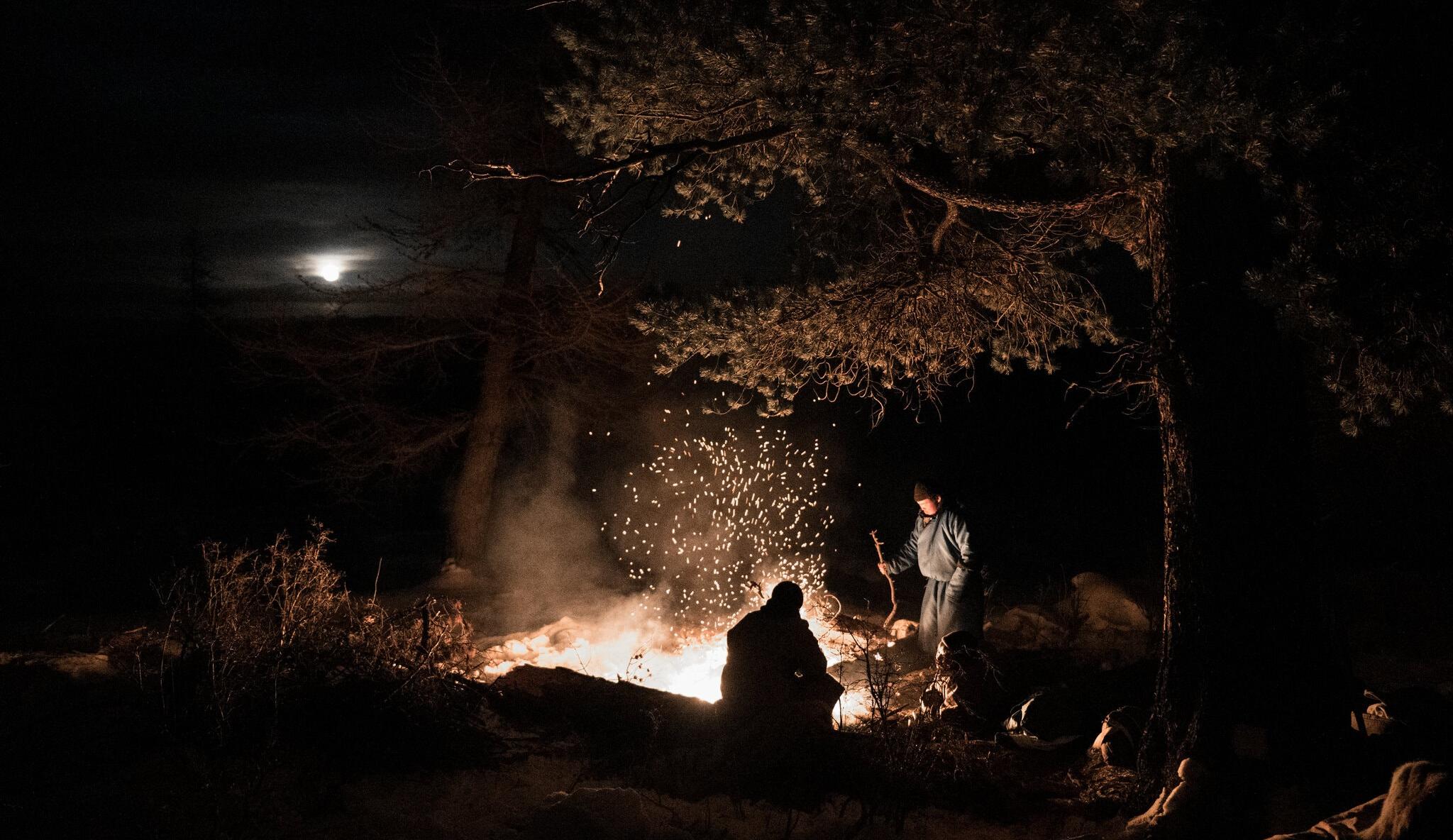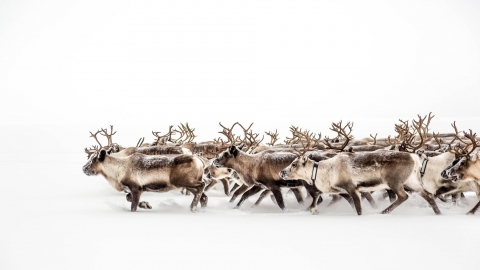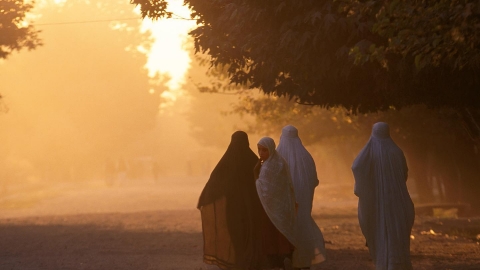One foggy morning, mist enveloped the valley near the small village of Hatgal, south of Lake Khovsgol in central northern Mongolia. Glancing through the deciduous pine forests, it was difficult to distinguish the figures of reindeer from their herders. Here, Belgian photographer Régis Defurnaux had a special encounter with members of a semi-nomadic reindeer-herding tribe known locally as the "Reindeer Tribe."Dukha, or Tsaatan.
Darima Delger (64) and her husband, Uwugdorj Delger (66), are packing up their belongings and dismantling a rusty stove. They toss a coat over the shoulders of their grandson perched on the back of a reindeer. The entire herd stands still like a still painting, waiting to depart. The rattling of tents, mingled with a cacophony of human voices, is the almost certain sign of a move to new red lands as each season changes. When winter arrives, the men usually stay with the reindeer herds in remote valleys near the Russian border to protect them from hungry wolves, while the women remain in the village to supervise their children's schooling.
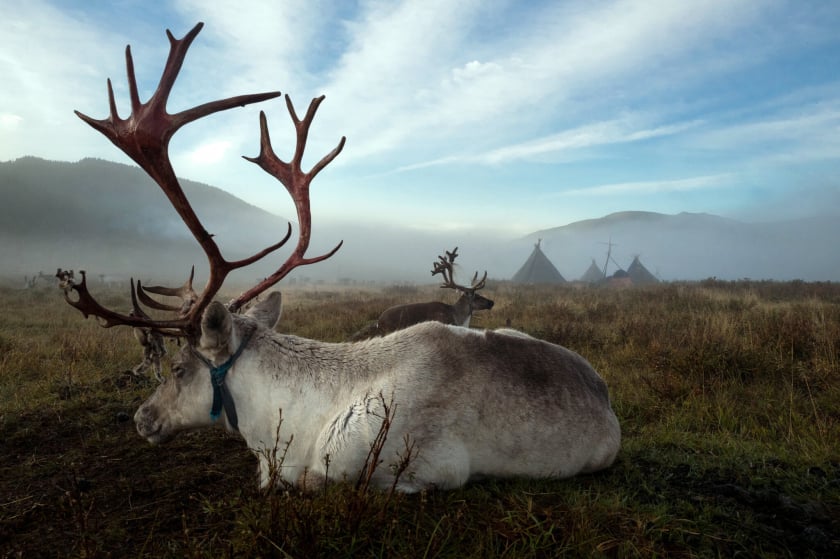
A foggy morning in the middle of the Delger family's campsite.
Darima and Uwugdorj's family are members of a small Dukha group. Only a few hundred people of this tribe remain here in northern Mongolia. Their lives revolve around their domesticated reindeer, which provide many products to meet their daily needs, such as milk (used for tea, yogurt, and cheese), hides (for fabrics and clothing), and transportation, as well as velvety antlers sold for use in medicine and health supplements. Because they are constantly on the move and live in cold weather, they have difficulty farming or obtaining other food sources. The Dukha do not eat reindeer meat, unless the animals are no longer able to move. Perhaps only once or twice a year are reindeer slaughtered for meat.
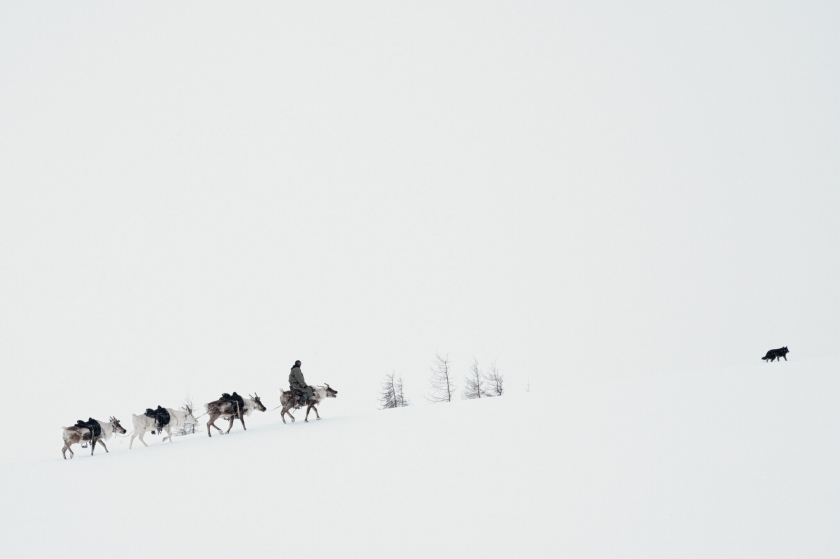
Sumya Batbayar (19 years old), a Dukha boy, is leading a herd of reindeer across the snow to a winter field.
The decision to move the entire herd was not simple. Uwugdorj explained that in previous years, they moved the reindeer herd about once a month. "Actually, it's more accurate to say we follow them," he laughed, "Reindeer are very intelligent."
But now, things are no longer so easy, as the cycles of rain and snow are becoming increasingly erratic. The weather in the Taiga forest—the sub-Arctic forest where animals thrive—is also becoming more unpredictable. Lichens, a staple food in the reindeer's diet, have a particularly fragile chance of survival due to climate change. Not to mention that reindeer populations in Mongolia are also declining sharply due to disease and predation by wolves.
"If we miscalculate, we could put the whole herd in danger," Uwugdorj said, checking the straps of his saddle. Once ready, he mounted his reindeer and began his long, arduous journey along the snow-covered road.
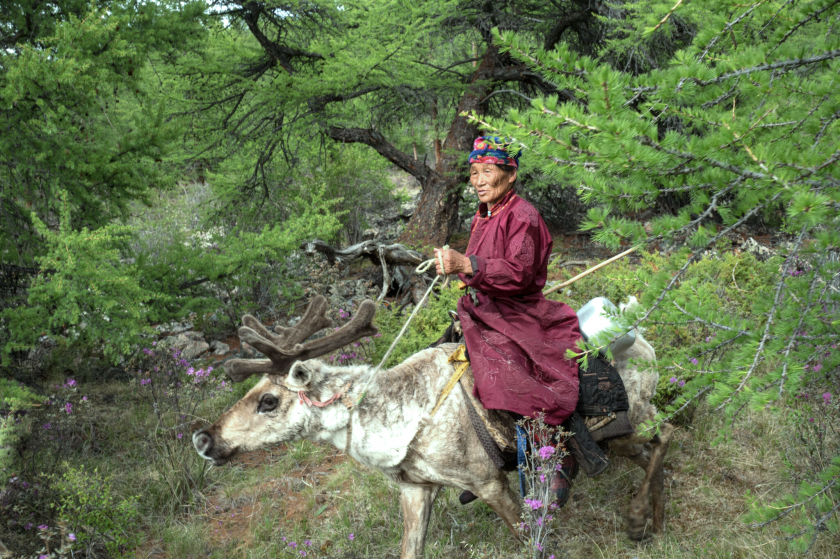
Darima Delger on the back of a reindeer.
On horseback, photographer Régis Defurnaux struggled to keep up with the herd. Compared to reindeer, horses moved slowly and heavily, like elephants. Despite a knee injury, Uwugdorj weaved his way through the pine trees and quickly disappeared from his sight. Along with Darima and their daughter, Régis helped search for reindeer that were weak and ill from the winter cold. He noticed the worried expressions on the family's faces. "If we lose our reindeer one day, we'll lose everything," Darima whispered.
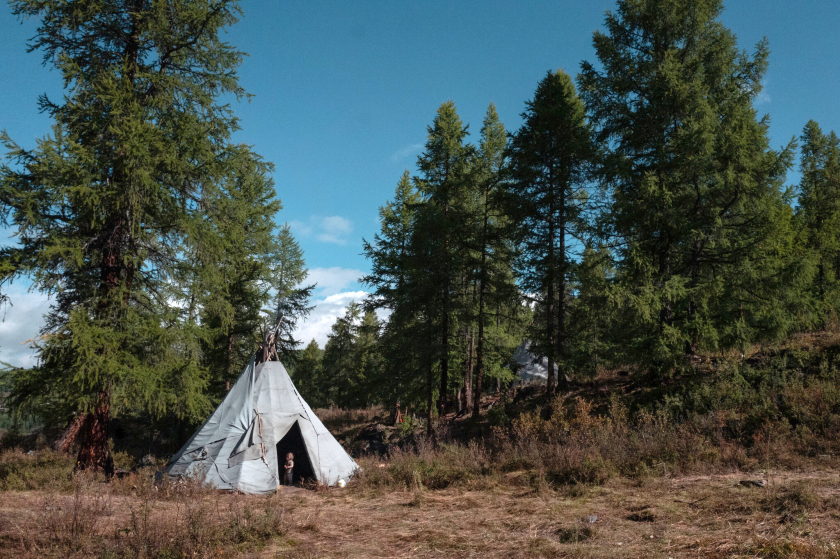
The Dukha people sleep in white tents called ortz.
After arriving at the new pasture in the pouring rain, they quickly set up their tents. Around 20 other families were also in the process of relocating their herds. Darima went to milk the reindeer. After finishing their tasks, everyone gathered around a crackling campfire.
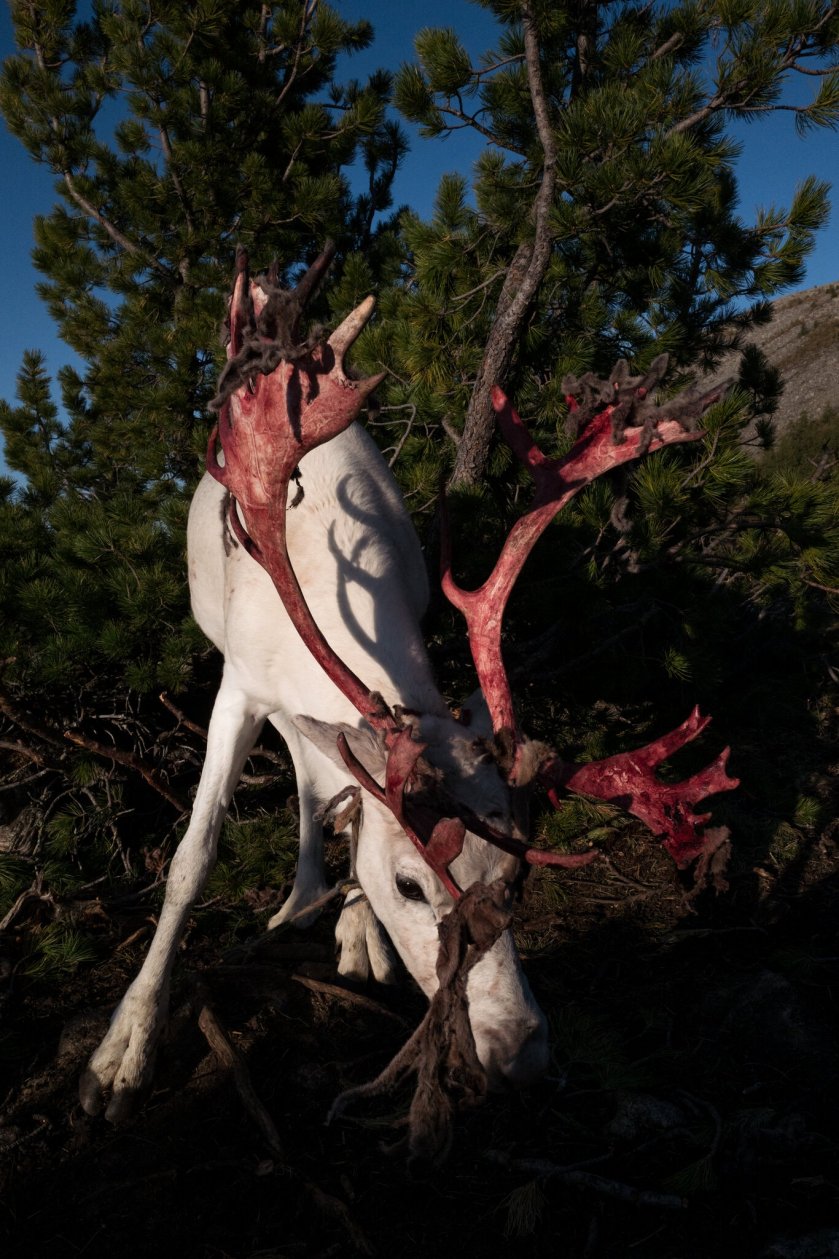
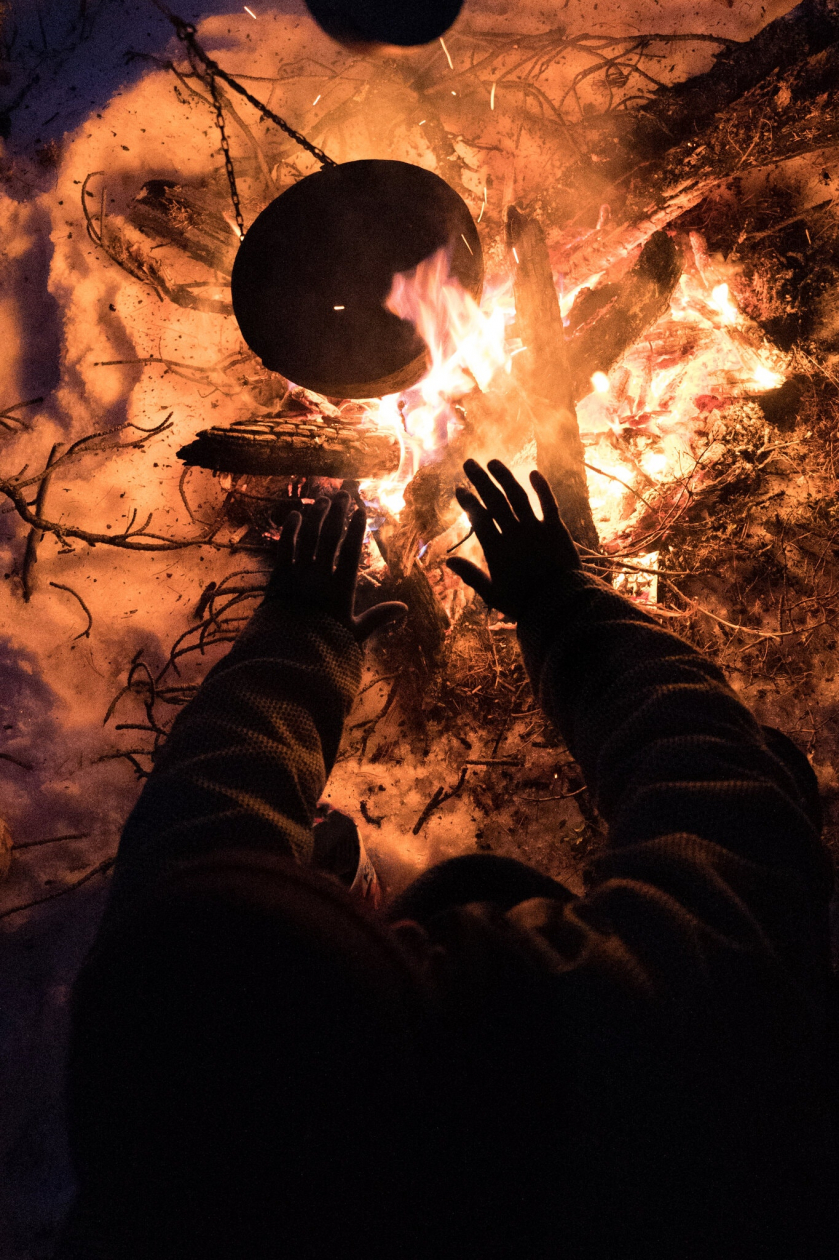
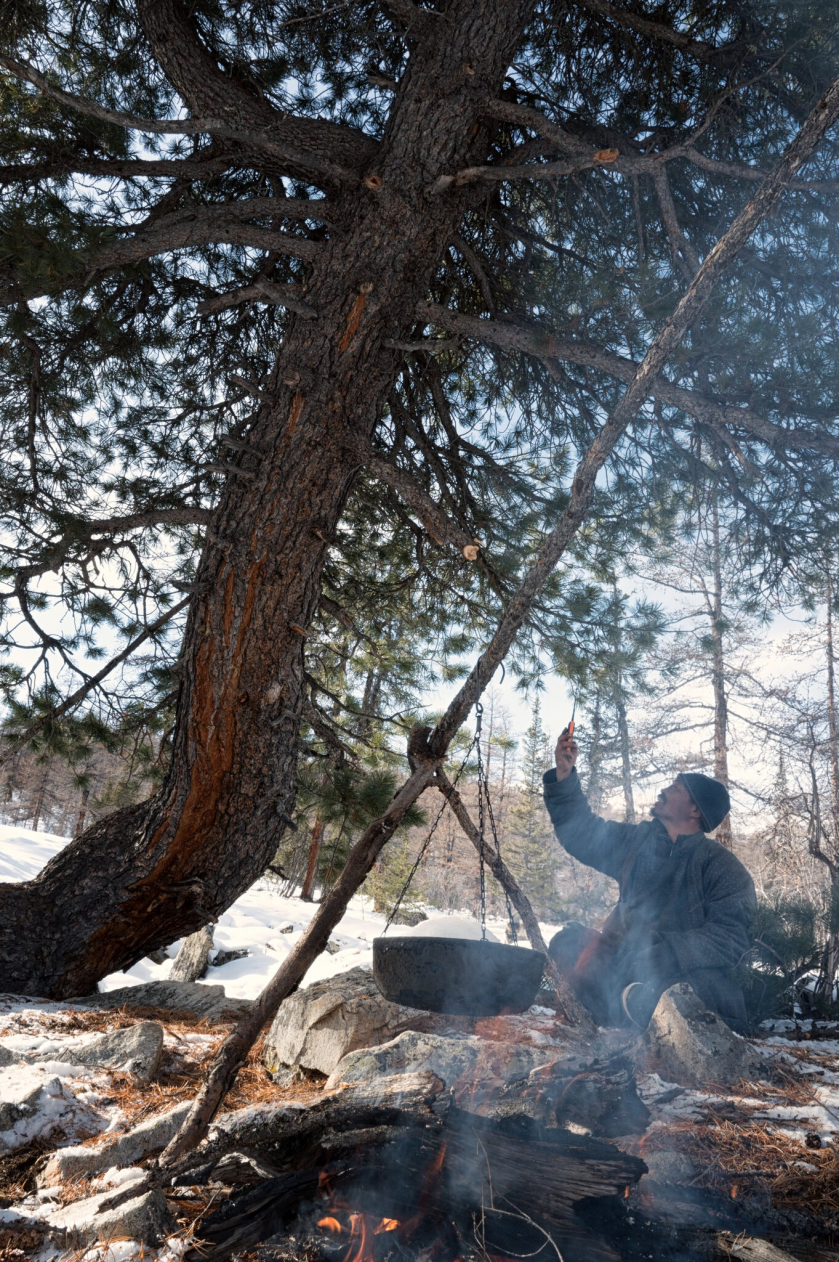
Magser Batbayar (a Dukha man) is searching for a phone signal to send a message to his wife in the winter fields.
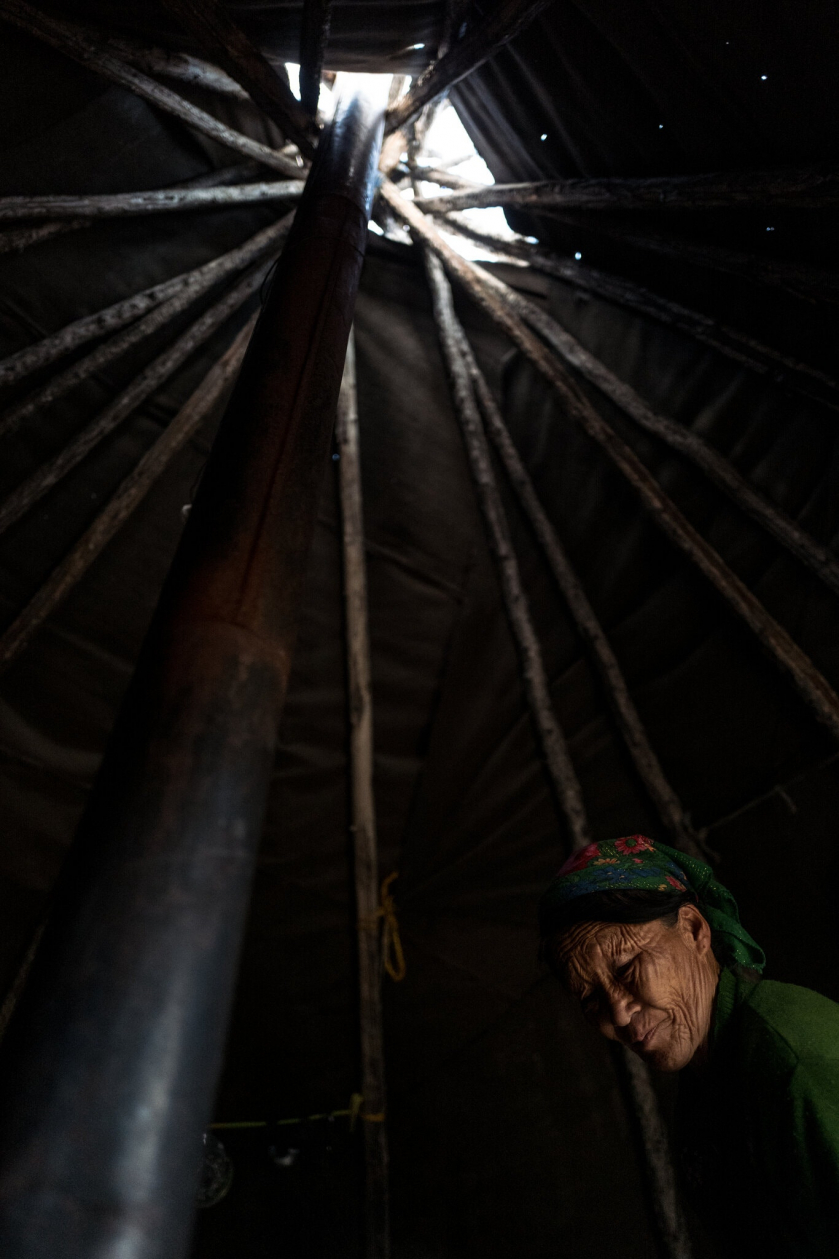
Darima Delger is preparing tea for his family.
Uwugdorj recounts that the Dukha people originate from the Tuva region in northern Russia. Tuva was once an independent state before being annexed by the Soviet Union in 1944. When the northern border of Mongolia was redrawn, the lives of the Dukha tribe changed dramatically – families were scattered, nomadic migrations to the grasslands were restricted, and many became refugees. Uwugdorj recalls that in the past, it was thanks to selling reindeer hides to wealthy customers that his family was able to save enough money to build a house in the village of Tsagaannuur, west of Lake Khovsgol, so that their children could receive a proper education.
Every summer, tourists from China, Israel, the United States, and New Zealand visit the Taiga forest and explore the nomadic life of the local people, who ride reindeer. However, not all Dukha families earn money from tourism. Instead, they make a living selling pine nuts and velvet antlers, along with small allowances. Even so, according to Dawasurun Mangaljav (28), a Dukha woman, "that money isn't enough to support our families."
“People think everything we have is free,” Dawasurun says. “In reality, money is a persistent problem.” Throughout the summer, her children live with their parents in the forest. Only when the parents can afford the tuition can the children return to school in September each year.
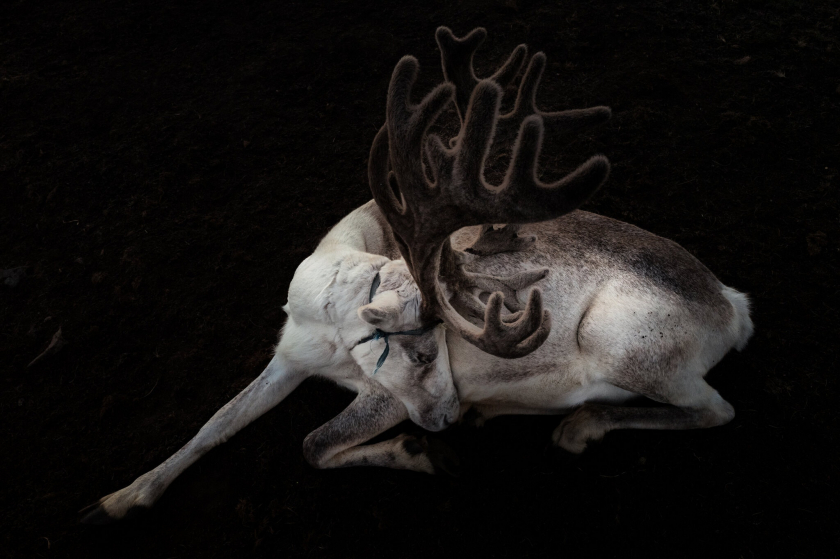
A reindeer rests in the setting sun.
In 2012, after enacting a ban on hunting wild animals to conserve nature, the Mongolian government began providing monthly subsidies to the Dukha people as compensation. Many families used the money to move to settled villages with schools and hospitals, making it easier for their children to attend school, thus ending their nomadic lifestyle with reindeer herds and huts in the forest.
Uwugdorj told photographer Régis, "We are not wax figures in a museum. We are like reindeer: always on the move."
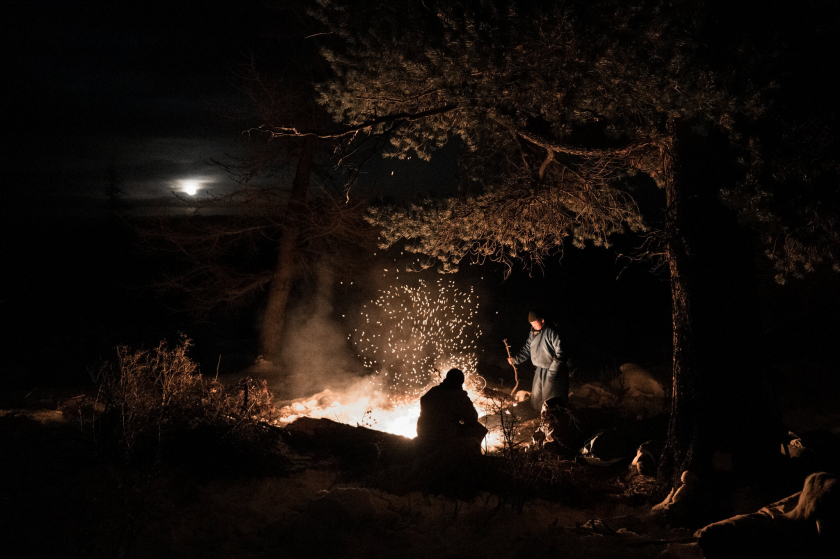
Sumya Batbayar and his brother Dawaadorj are leading their reindeer herd to a field as winter approaches.
And despite the many difficulties and challenges, the Dukha people – who bear the responsibility of being the last migratory reindeer herding tribe in Mongolia – persevere in preserving their traditional cultural identity of a semi-nomadic lifestyle, which they call a battle for survival.

 VI
VI EN
EN




